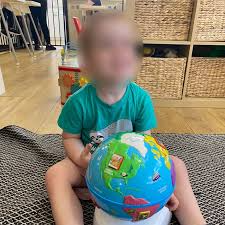
NSE childcare abuse shock
NSE Childcare Abuse Shock A Deep Dive into the Disturbing Incident and Its Aftermath
In recent weeks, New South Wales (NSE) has been shaken by a deeply troubling scandal involving the abuse of children at a local childcare facility. The revelations have sent shockwaves through the community, prompting urgent calls for greater oversight, stricter regulation, and a thorough review of childcare practices across the state. This incident, which unfolded quietly before exploding into public awareness, has laid bare vulnerabilities in the childcare system that many had hoped were long addressed.
The initial reports emerged when several parents noticed unexplained bruises and behavioral changes in their toddlers after attending the same childcare center. What began as isolated concerns soon snowballed when a whistleblower from within the facility came forward, sharing harrowing accounts of physical and emotional mistreatment of children. Authorities were alerted, leading to an immediate investigation that uncovered evidence of neglect, harsh disciplinary measures, and in some cases, outright abuse by childcare workers entrusted with the care of some of the most vulnerable members of society.
The abuse at the center reportedly spanned several months, during which staff members allegedly engaged in inappropriate physical handling, verbal intimidation, and failure to provide adequate supervision. Investigators discovered video footage and testimonies that painted a grim picture children left unattended for long periods, rough treatment under the guise of discipline, and even instances where children were isolated as punishment. The scale of the abuse shocked many given that childcare facilities in NSE are subject to stringent regulatory standards designed to protect children’s welfare.
Parents expressed their anguish and disbelief upon learning the extent of the mistreatment. Many had trusted the center implicitly, believing it was a safe environment for their children during their working hours. The betrayal felt by families is compounded by the emotional and psychological impact on the affected children, some of whom have reportedly shown signs of trauma and distress. Child psychologists emphasize the critical importance of early childhood environments in shaping a child’s sense of security and trust, and these incidents have understandably caused significant concern over the long term effects on the young victims.
The NSE government swiftly responded to the scandal by launching an independent inquiry into the childcare sector’s oversight mechanisms. The inquiry aims to identify systemic failures that allowed such abuse to occur undetected for so long. Preliminary findings suggest gaps in regular inspections, inadequate staff training, and insufficient channels for children and parents to report concerns safely. The government has pledged to overhaul regulatory frameworks to ensure more frequent and thorough monitoring of childcare centers, coupled with harsher penalties for breaches of child safety laws.
Childcare industry experts have weighed in, highlighting that while the vast majority of childcare providers are committed professionals, isolated incidents like this expose the necessity for constant vigilance. They stress the need for enhanced background checks, ongoing professional development focused on child welfare, and the implementation of transparent reporting systems. Moreover, they advocate for empowering children with age appropriate ways to express discomfort or report abuse, fostering a culture where safeguarding is everyone’s responsibility.
Community groups and advocacy organizations have also mobilized in response to the scandal. Support networks have been established for affected families, offering counseling and legal assistance. Public campaigns aiming to raise awareness about child protection in childcare settings are gaining momentum, urging parents to be more proactive in engaging with childcare providers and understanding their rights. The scandal has sparked a broader conversation on the balance between accessibility, affordability, and safety in childcare services, highlighting that no compromises can be made when it comes to the well being of children.
This incident serves as a sobering reminder that childcare, while an essential service for working families, must never lose sight of the paramount importance of child safety. It has laid bare vulnerabilities within the system and triggered a collective resolve to rebuild trust through transparency, accountability, and continuous improvement. As NSE moves forward from this dark chapter, the hope remains that these reforms will create a safer environment where children can grow, learn, and thrive free from fear.











